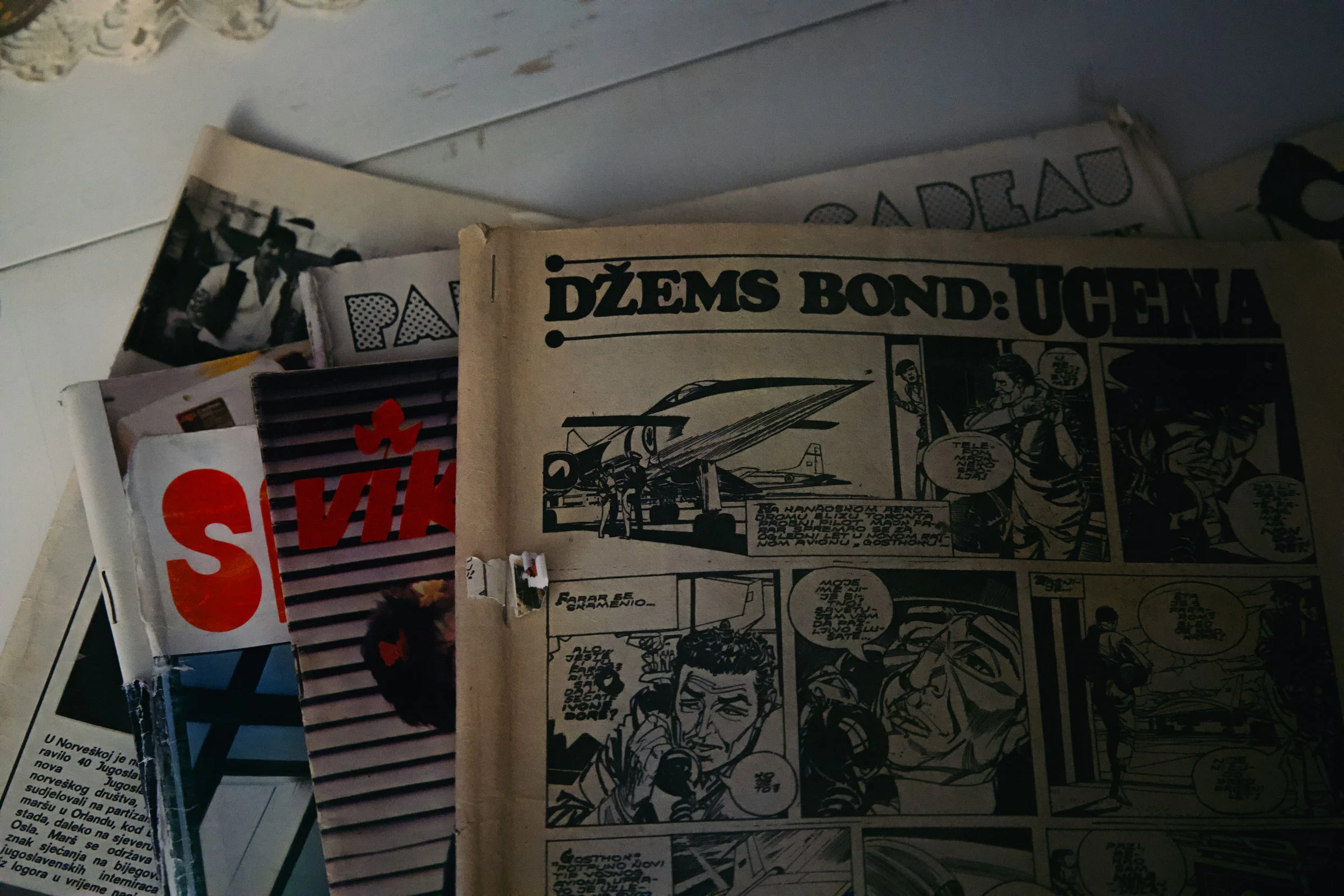Generative AI and Comics: Threats and possible solutions
Today, artists and writers are engaged in lawsuits against generative AI producers for copyright infringement.
Underlying this growing concern over copyright issues lies a central question: who should own the patterns inherent in human-generated media?
All Works of art, including comics, contain these patterns, and the patterns are generated by the human mind.
Also called cognitive algorithms, these patterns can be extracted and appropriated for AI development.
AI developers claim the patterns are non-expressive.
We assert the opposite, and we believe that the cognitive algorithms embedded in works of art should belong to the artists who created them.
In our documentation section, We demonstrate why that is the case.
We propose an alternative process to AI development. Starting with sociotechnical systems analysis informed by ethical standards of informed stakeholder engagement, we hope to help artists and writers see the possibility for a more harmonious outcome.
We offer this website as a forum where writers, artists, legal professionals and others can work together to prevent harm from generative AI.
We invite you to work with us in the creation of socially-engaged art (SEA) documenting artist claims to ownership of their creative algorithms.
For more information and to be involved, please feel free to contact us via our contact page.
Photo by Andrew De Leon on UnsplasH
We believE in STRENGTH through NUMBERS IN ADDRESSING THE CHALLENGES PRESENTED BY GENERATIVE ARTIFICIAL INTELLIGENCE
Photo by Marjan Blan on Unsplash
Document
YOUR
sTORY
Photo by Miguel Alcântara on Unsplash
Photo by Emre Turkan on Unsplash
A SYSTEMS ENGINEERING APPROACH
There are many ongoing lawsuits that attempt to stop AI developers from infringing on the rights of Artists to their copyrighted work.AI developers have responded to copyright lawsuits by making a particular claim. They say that they are copying non-expressive data and that their use of copyrighted works is covered by fair use law. However, when an AI developer copies the patterns of human expression, they copy the creative algorithms that allow artists to express themselves creatively. For more discussion of this point, please see our documentation section.
Photo by João Pedro Schmitz on Unsplash
DOCUMENt YOUR ARTISTIC PROCESS
as part of this problem-solving process, WE will facilitate the development OF A VOLUNTARILY-JOINED LIST OF comics artists tOWARD BUIILIDNG A CLASS ACTION tHAT SUPPORTS the NEED TO AMEND INTELLECTUAL PROPERTY RIGHT LAW THAT ACKNOWLEDGES COGNITIVE ALGORITHMS AS A FORM OF INTELLECTUAL PROPERTY THAT SHOULD BE PROTECTED IN LIGHT OF EMERGENT TECHNOLOGY THAT TRAINS LARGE LANGUAGE MODELS THAT ENABLE GENERATIVE AI.
To help ARTISTS think about THEIR OWN artistic cognitive algorithmS and its development, go to this Questionnaire. Your answers are private and will not be published without your consent.
LEARN ABOUT THE CURRENT COPYRIGHT SITUATION
This project seeks to protect artists from having their work appropriated by generative AI developers.We also seek to foster a more harmonious coexistence of AI and artistic communities. To address this problem we can evaluate this sociotechnical system using systems engineering tools and methods. This approach can help mitigate the many possible unintended and unwanted consequences for artists through the systemic design of policy. The intersection of AI and artistic communities is unique compared to AI and society as a whole. The ethical, economic, and creative concerns provide tough challenges for policy development, and using a sociotechnical system approach may provide a pathway to social sustainability.DISCUSS, DRAW, & CLAIM YOUR IP
DISCUSS, DRAW, & CLAIM YOUR IP
DISCUSS, DRAW, & CLAIM YOUR IP DISCUSS, DRAW, & CLAIM YOUR IP
about us
Dr. Dana Polojärvi is a Professor of Humanities and Social Sciences at the Maine Maritime Academy. He is also Co-Chair for the Social Systems Working Group at the International Council on Systems Engineering (INCOSE). In his teaching and research, Dr. Polojärvi works on sociotechnical systems analysis and decision-making with a wide variety of foci, including generative AI, conflict and war, food systems, education and many others. His most recent interest is in the sociotechnical systems structure of generative AI and its ethical relationship with current regulatory frameworks like copyright, fair use and human rights law. Early in his career, he did a lot of work on comics and sequential art, especially using phenomenological theory to explore the experience of reading and of life as a comics fan. That early work made him especially interested in the way people experience change.Dr. Hortense Gerardo is a playwright, anthropologist and Director of the Anthropology, Performance, and Technology (APT) Program at the University of California, San Diego. Her works have been performed nationally and internationally, including: the Institute of Contemporary Art (ICA) in Boston, Nuit Blanche Festival, Toronto, the New Americans Museum, Umbrella Stage, and the Without Walls Festival by La Jolla Playhouse. She is Co-founder of the Asian American Playwright Collective (AAPC), heads the Screenwriting competition on the Board of the Woods Hole Film Festival and teaches in the Mechanical and Aerospace Engineering Program at the Jacobs School of Engineering. For more: www.hortensegerardo.com







